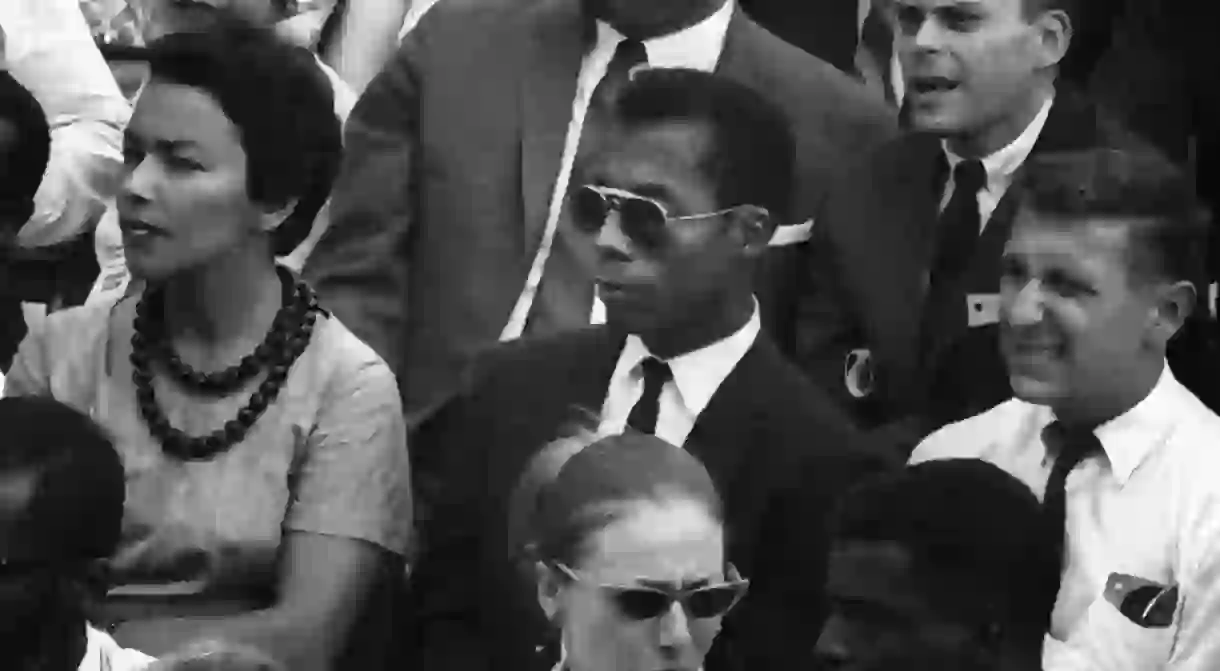These Documentaries Offer Entry Points to Educating Yourself on Racism

Understanding how racial discrimination is deeply embedded into capitalism and our social structures goes way beyond watching a single documentary or film. But, as we are seeing in the aftermath of George Floyd’s murder, people around the world want to express solidarity with the Black Lives Matter movement. Showing a commitment to better educating yourself on the discourse surrounding race is just one way. Culture Trip curates five entry points via the medium of television.
The murder of African-American George Floyd on May 25, 2020, started a revolution. Protests – some peaceful, some otherwise – broke out in the USA before reverberating around the globe to countries including the UK, Denmark, Japan and Australia. Together in unity, the world has marched to the chorus of “Black Lives Matter” and “no justice, no peace” for the senseless killing of Floyd, and so many others in the black community – all at the hands of white police officers.
People have had enough – and reform is needed. Being informed is essential in stepping up and standing up for what is right, and calling out what is not. Culture Trip contributes to this process through this curated list of five documentaries.
‘13th’ (2016)
The United States holds 21 percent of the world’s prisoners, according to the National Association for the Advancement of Colored People (NAACP). Of that figure, data from 2015 suggests African Americans and Hispanics count for 56 percent of incarcerated persons, despite only making up 32 percent of the US population. “If African Americans and Hispanics were incarcerated at the same rates as whites, prison and jail populations would decline by almost 40 percent,” according to the NAACP criminal justice fact sheet. It estimates that African Americans are incarcerated at more than five times than white people. It is this blatant inequality that forms the basis of Ava DuVernay’s 2016 Netflix documentary, 13th, in which she looks at race, justice and mass incarceration in the United States. And if you don’t have a Netflix subscription, it’s not an issue – the streaming service has made this important watching free.

‘LA 92’ (2017)
In 1992, a black man was beaten to disfiguration by four white police officers. His name was Rodney King, and he was a construction worker who was pulled over for drunk driving. Such a beating would never happen to a white man. And it was this knowledge and the brutality inflicted on King that saw Los Angeles erupt in anger. He “became a symbol of police brutality against African Americans,” The Independent reported. Riots broke out, seeing over 12,000 people arrested and 63 lose their lives. In their 2017 documentary, directors TJ Martin and Daniel Lindsay relive these riots and explore the trial that followed. It feels particularly poignant now with current protests.
‘I Am Not Your Negro’ (2016)
American novelist and essayist James Baldwin was an essential voice during the American civil rights movement; he used his gift for the written word to explore race and class distinctions in Western societies. “He was also an agitator and a propagandist, political and engaged… He was the most eloquent man in the America of his time,” The Guardian wrote on his character. Baldwin campaigned tirelessly along with his friends Medgar Evers, Malcolm X and Martin Luther King Jr – all of whom were assassinated. These deaths promoted a book Baldwin was to call Remember This House, in which he planned to offer insight into these civil rights leaders. Unfortunately, death struck him before its completion. Working with the 30 pages of his manuscript, filmmaker Raoul Peck brings to life what the book might have taught us.

‘Time: The Kalief Browder Story’ (2017)
In this six-part documentary series, we begin to understand racism in the context of economic inequality. Time: The Kalief Browder Story, directed by Jenner Furst, follows the case of Kalief Browder, a Bronx high school student, who was held in solitary confinement for two years at 16 years old for allegedly stealing a backpack. His bail was set for $3,000, but it wasn’t something his family could afford to settle, meaning he would spend three years in horrific conditions on Rikers Island while awaiting trial – despite never being convicted. Eventually, the charges were dropped, but Browder sadly took his own life after his release.
‘There’s Something in the Water’ (2019)
The work of Canadian actress and activist Ellen Page and film director Ian Daniel, There’s Something in the Water brings environmental racism in Nova Scotia, Canada, to our attention. Exploring cases laid out by professor Ingrid Waldron in her 2018 book of the same name, the documentary exposes inequality in the Canadian province. It documents how Nova Scotia has long placed landfills and chemical plants on sites that disproportionately affect black and indigenous communities – with premature deaths by cancer and environmental havoc the harrowing reality.













